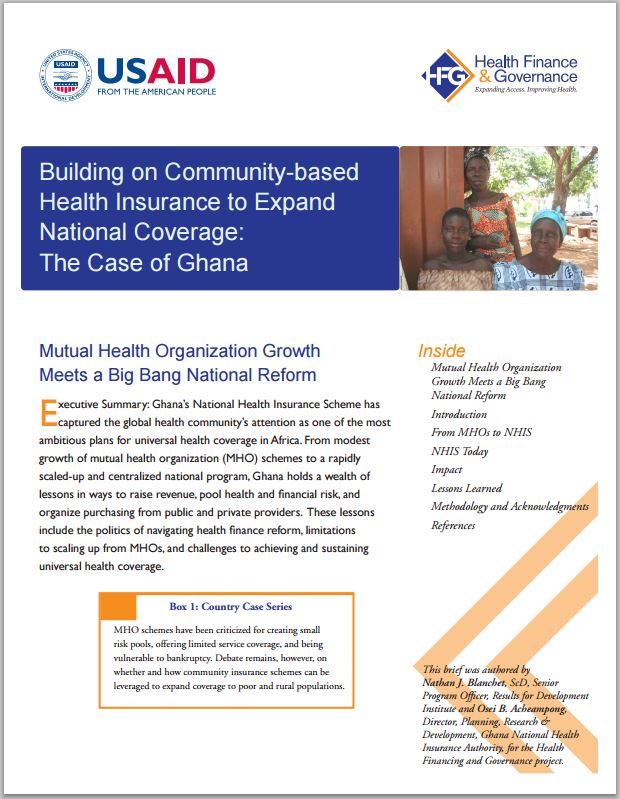Building on Community-based Health Insurance to Expand National Coverage: The Case of Ghana
Categories: Health Insurance (CBHI, SHI), Publications, Universal Health Coverage
Resource Type: Case Study
Authors: Nathan J. Blanchet and Osei B. Acheampong
Published: 12/30/2013
Resource Description:
 Ghana’s National Health Insurance Scheme has captured the global health community’s attention as one of the most ambitious plans for universal health coverage in Africa. From modest growth of mutual health organization (MHO) schemes to a rapidly scaled-up and centralized national program, Ghana holds a wealth of lessons in ways to raise revenue, pool health and financial risk, and organize purchasing from public and private providers. These lessons include the politics of navigating health finance reform, limitations to scaling up from MHOs, and challenges to achieving and sustaining universal health coverage.
Ghana’s National Health Insurance Scheme has captured the global health community’s attention as one of the most ambitious plans for universal health coverage in Africa. From modest growth of mutual health organization (MHO) schemes to a rapidly scaled-up and centralized national program, Ghana holds a wealth of lessons in ways to raise revenue, pool health and financial risk, and organize purchasing from public and private providers. These lessons include the politics of navigating health finance reform, limitations to scaling up from MHOs, and challenges to achieving and sustaining universal health coverage.
The case study traces the evolution of Ghana’s health financing from a strictly cash-and-carry system to one in which a third of the population is covered by the national insurance plan. An important intermediate step in this process was the rise of local mutual health organizations, which provided limited insurance coverage to small pools of enrollees.
The case study explains how the government drew upon the experience and expertise of these mutual health organizations in creating the National Health Insurance Scheme, which was launched in 2003. The creation of the system was also heavily influenced by electoral politics. The case study demonstrates how important elements of the current system, such as the earmarking of value-added taxes to pay for coverage and the absence of cost-sharing, were shaped by political considerations.
Download Now


